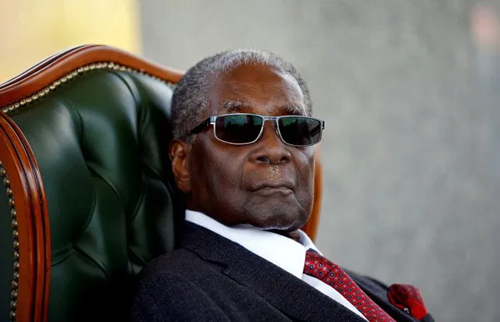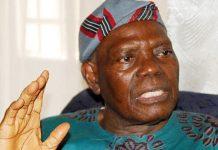Zimbabwe’s founding father, Robert Mugabe, was finally buried Saturday in the rural village where he was born.
The private burial followed weeks of argument between his family and the government.
Ministers wanted the body laid to rest at the National Heroes Acre in Harare with a mausoleum built at the site. The cemetery is reserved for heroes of Zimbabwe’s liberation struggle, but his family wanted him buried close to his late mother Bona in Kutama.
Mugabe’s widow Grace and his children accompanied the coffin draped in the country’s green, yellow, red and black flag.
Memorabilia were sold in a tent outside his homestead before his funeral, including a photo of the leader holding up his fist in a gesture of defiance. Mourners wore T-shirts saying “Liberator” and “Torch bearer.”
Hundreds of mourners attended a service before the burial in Kutama on Saturday, but no senior government officials were there.
The ruling ZANU-PF Party spokesman Simon Khaya Moyo called the private burial “most unfortunate.”
Mugabe died Sept. 6 in Singapore, where he had been receiving treatment since April for an unspecified illness.
He ended the country’s white minority rule when he came to power after Zimbabwe’s fight for independence from Britain in 1980. He clung to his seat as the country’s first prime minister then president until 2017 when he was ousted in a coup for dismissing then Vice President Emmerson Mnangagwa, 76, to make it easier for his wife, Grace Mugabe, 54, to assume the presidency.
Though he initially improved access to education and health services for the country’s poor black majority, his critics said he later resorted to repression and economic mismanagement that sunk the economy.
A state funeral was held earlier this month with ruling Zanu-PF officials and foreign dignitaries paying tribute to this legacy as the country’s founding father, but some Zimbabweans shunned the ceremony, blaming him for the country’s ongoing economic turmoil with inflation, and food and fuel shortages.


























